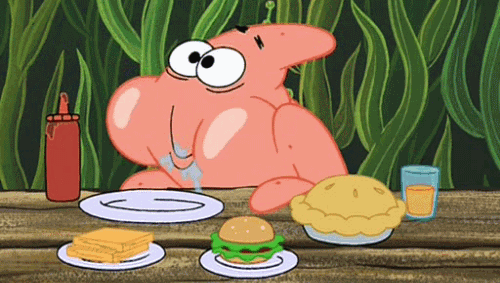There are some common misconceptions about fruit that can mean you don’t get the best of them. Like – fruit is too full of sugar or conversely, fruit is so healthy you don’t have to worry about how much you eat. Yes fruit has sugar and fruit is very nutritious but it isn’t free calories. Fruit is essential in a healthy, balanced diet, especially if you eat it smartly.
Snapshot Survey
Thanks for sharing your thoughts!
Please subscribe for your personalized newsletter:
Some Are Better than Others
 One of the smart ways to eat fruit is to realize that some are better than others. Blueberries and raspberries are a perfect starting point because they are so low in sugar.
One of the smart ways to eat fruit is to realize that some are better than others. Blueberries and raspberries are a perfect starting point because they are so low in sugar.
Some Fruits Have Sneaky Sugar
 An apple a day used to be recommended, but did you know that one medium sized apple actually contains around 19 grams of sugar?
An apple a day used to be recommended, but did you know that one medium sized apple actually contains around 19 grams of sugar?
However, with the Sugar Also Comes Good Stuff!
 Sure, fruits contain sugar, but they also have nutrients, antioxidants and fiber that are all incredibly healthy for you.
Sure, fruits contain sugar, but they also have nutrients, antioxidants and fiber that are all incredibly healthy for you.
/filters:quality(70)/thumbs/ms/jl/y0tu3myr5e5c7f567a5ce566285329_1080x1080.jpg)
Mix Fruit with Protein
 Dipping your apple slices in to something like peanut butter can really help to counteract the sugary content and provide for a tasty and healthy snack.
Dipping your apple slices in to something like peanut butter can really help to counteract the sugary content and provide for a tasty and healthy snack.
Not All Fruits Are Sugary, Though
There are a handful of fruits that are very low in sugar including olives, coconut and avocado, offering an even healthier alternative when you want one.
To give oneself earnestly to the duties due to men, and, while respecting spiritual beings, to keep aloof from them, may be called wisdom.
Frozen Fruits Are Fine
People can be wary of frozen fruits in the off season, but rest assured they are simply real fruit, nothing like the unhealthy frozen pre-packed meals that you can buy. To be extra careful, just take a quick look at the sugar content.
/filters:quality(70)/thumbs/ia/e8/x7bskjmf5c9550613fca8607889729_803x803.jpg)
It’s Not an All Day Food
 Thinking of fruit as a ‘free food’ is not actually correct, and you shouldn’t tend to go over the recommended five a day. Eating an excess of, for example, bananas, can actually work to slow down the rate of fat burning.
Thinking of fruit as a ‘free food’ is not actually correct, and you shouldn’t tend to go over the recommended five a day. Eating an excess of, for example, bananas, can actually work to slow down the rate of fat burning.
Be Careful with Dried Fruit
 Essentially, you should treat dry food like it’s candy, as it gives you very little fiber and not many nutrients and antioxidants compared to the real fresh, juicy thing.
Essentially, you should treat dry food like it’s candy, as it gives you very little fiber and not many nutrients and antioxidants compared to the real fresh, juicy thing.
Fruit Juice Doesn’t Count
Fruit without its fiber is prone to increase sugar levels, and this is exactly what happens with the majority of processed and commercial fruit juices.
Be Wary of Fruit Juicing
Though vegetable juice is super healthy, juicing your own fruits strips the fiber and causes a big sugar surge that will turn it into a much less healthy option.
Some Fruit Yogurts Have Tons of Sugar
A lot of the commercial yoghurts with the fruit on the bottom can have as much sugar as a candy bar. Instead, stir some real berries in to unsweetened Greek yogurt for a tasty and healthy option.
Veggies Win out
 Most experts state that any of the nutrients that can be found in fruits are also found in vegetables, but with the added bonus of much less sugar going in to your body.
Most experts state that any of the nutrients that can be found in fruits are also found in vegetables, but with the added bonus of much less sugar going in to your body.
Fruit is Not Always a Healthier Sweetener
 Just because you are getting a sweet taste from fruit rather than powdered sugar or honey, the fact of the matter is that is still breaks down the same way in your body.
Just because you are getting a sweet taste from fruit rather than powdered sugar or honey, the fact of the matter is that is still breaks down the same way in your body.
Organic is Not Always Essential
If your budget is tight then you can save a few pennies by not shopping organic. Search for the up-to-date ‘Clean Fifteen’ list that gives you the top list of fruits that contain the least amount of pesticides.
The Vitamin C Myth
 Though oranges are always considered the best option for Vitamin C intake, fruits like kiwi, strawberries and guava are actually just as good, if not better!
Though oranges are always considered the best option for Vitamin C intake, fruits like kiwi, strawberries and guava are actually just as good, if not better!
Know What Fruits Are Good for Specific Needs
 This will help you more efficiently fuel yourself. For example, bananas are good for potassium and magnesium, and passion fruit is great for fiber.
This will help you more efficiently fuel yourself. For example, bananas are good for potassium and magnesium, and passion fruit is great for fiber.
Eat Fruit on an Empty Stomach
 Eating fruit on an empty stomach, for example for breakfast, is a great idea because your stomach will be able to digest and process all of the different nutrients much easier.
Eating fruit on an empty stomach, for example for breakfast, is a great idea because your stomach will be able to digest and process all of the different nutrients much easier.
Avoid Eating near Bedtime
Avoid eating fruit in the late evening as the sugar content will give you a spike in energy and you will find it harder to get to sleep!
Browse for Your Favorites
With so many different fruits to choose from, test the field and listen to your body in order to find the fruits that best agree with you and give you the biggest sense of well being.
Do you get enough fruit in your diet and are you smart in your choices and when you eat it?

/filters:quality(70)/cover/54004a91c6a8a1ef0f11865d-fruit-salad-on-gray-bowls-sometimes-the-very-best-breakfast-eats-are-the-si.jpg)
/filters:quality(70)/thumbs/44/cb1hs29dia719aw9naoq9i_1080x1351.jpg)
/filters:quality(70)/thumbs/00/rpa48yu5lonl3q5wynoy1h_1080x1350.jpg)
/filters:quality(70)/thumbs/00/rrskmigc8yj35gn7nv5qtn_1080x1259.jpg)
/filters:quality(70)/thumbs/dd/ua/bf5rmwcl5c534e3419a93541329648_1080x1080.jpg)
/filters:quality(70)/thumbs/f1/eb/uswnf3ux5b96d124315cb386006951_1080x1080.jpg)
/filters:quality(70)/thumbs/rw/ar/gva7xy175a9b12d8f4080177960859_1080x1080.jpg)
/filters:quality(70)/cover/5a668281841bf749d24ae961-a-bowl-filled-with-fruit-and-vegetables-on-top-of-a-table-food-drink.jpg)
/filters:quality(70)/thumbs/zc/jn/pjg5vi9m569b0a0543dfa178975793_400x400.jpg)
/filters:quality(70)/diet/thumbs/z3/eg/mnf4m7am560614b3f348f090633181_400x400.jpg)
/filters:quality(70)/diet/thumbs/ho/zz/ypisxdev5596035c5c0ed964123582_400x400.jpg)
/filters:quality(70)/food/thumbs/ur/jb/nxcpsqem554afe156b204370286920_400x400.jpg)
/filters:quality(70)/cover/542573e463d106f9599e0a2a-variety-of-sliced-fruits-health.jpg)
/filters:quality(70)/health/thumbs/h5/op/pcd45ybx_400x300.jpg)
/filters:quality(70)/food/thumbs/11/449_400x300.jpg)
/filters:quality(70)/cover/528598c5d65908c77cf41408-three-granny-smith-apples-health.jpg)
Feedback Junction
Where Thoughts and Opinions Converge